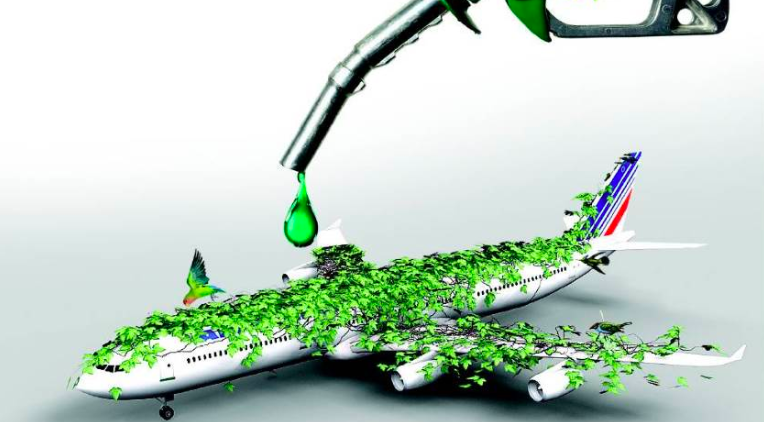
Last week, leaders in the aviation sector met to discuss how to speed the development of the infrastructure and technology needed to wean airplanes off fossil fuels and onto biofuels instead. Airplane manufacturers have until now focused on investing in improving the fuel efficiency of new airplanes, but because of the growth in air travel, those advances have not resulted in a decrease overall in carbon emissions from the air travel. The group met in Seattle because the Port of Seattle, which operates Sea-Tac International Airport, has pioneered using biofuels at its airport and now has set a goal of having 25 percent of its jet fuel come from local, low-carbon sources by 2035.
- Those sources could include oilseed crops like canola, greasy waste from restaurants and slaughterhouses and piles of wood left by logging operations.
- Experts in the region believe that there’s enough raw material in the Northwest to produce 400 million gallons of renewable jet fuel a year.
- As a first step, Boeing announced that it will begin offering airlines and operators the chance to have their jets powered by biofuel when they leave Boeing’s delivery centers in Seattle and Everett, Washington and Alaska Airlines immediately signed up.
- According to Boeing, since it was first tested 10 years ago, airlines around the world have flown nearly 170,000 passenger flights on a blend of biofuel and petroleum fuel.
Boeing stated that it has “worked with partners across the globe to develop sustainable biofuel supplies that can be scaled and priced competitively with traditional jet fuel. Projects have used feedstocks such as forestry and agriculture waste, Brazilian sugarcane, and plants irrigated by coastal seawater in the United Arab Emirates.” Boeing currently gets its fuel from World Energy, the world’s first facility designed to commercially produce renewable jet fuel, which is made from agriculture waste, and is certified for commercial use and can be blended with traditional jet fuel without modifications to airplanes, engines or fueling infrastructure. The Navy also continues a program of using biofuels in its jets that was started during the Obama Administration. According to the former Navy Secretary, Ray Mabus, the Navy still uses biofuels today, not because of any environmental benefits, but because they make the armed forces more effective. “We have SEAL teams that are net zero in terms of energy,” Mabus said. “They can stay out almost indefinitely.”
Why This Matters: Biofuels for the aviation sector cut their emissions by up to 80 percent, according to Boeing. As we reported a couple of weeks back, Amazon has recently committed to cutting its transportation emission and plans to do so by using biofuels to fly its products to their destinations. The Navy still uses biofuels too, even after many said that “greening the fleet” should not be a priority. With air travel expected to continue to grow, this is an area that needs a boost — like wind and solar energy has already received. Since biofuels are technologically feasible today without modification to planes or airport infrastructure, with just a nudge from the government – the Green New Deal perhaps — biofuels in aviation will likely take off.
March 11, 2019 » airplane, aviation, biofuels, Boeing, Navy, Sea-Tac, Seattle


